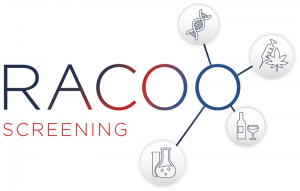Research by Drinkaware has shown that, although At-Risk Drinkers may be aware they drink too much, many of the stereotypical depictions they see of ‘problem drinking’ aren’t relatable and are dismissed as ‘not them’.
To fuel any motivation to change, you need to piggyback onto what those at risk already care about. This means helping to connect the dots between drinking too much and what motivates them in their everyday lives; such as losing weight, their mental and physical health, saving money and their relationships.
- Increase the salience of their drinking and build awareness that they might need to change – link their alcohol consumption and its impact on wider lifestyle goals
- Tap into any motivation they already have to make a change – create empathy and understanding by positively talking about moderation and reassuring that change is possible
- Support them to work out what changes they can make that are relevant to their drinking behaviours – help them identify the right moderation tips and strategies that are best suited to their lifestyle
- Help them put their plan into action and maintain change over time – use an appropriate method to show and celebrate the progress they’ve made
Friends and family are motivated to help moderate the drinking of At-Risk Drinkers, but they frequently feel powerless, not knowing where to start or who to turn to. It can be a very lonely experience.
Additionally, the experiences and related support needs can be quite different for spouses and partners who are living with an At-Risk Drinker compared to a more distant concerned friend or family member.
Drinkaware have identified a few triggers where a spouse, family member or friend is prompted to seek help. These range from noticing an increase in the volume or frequency of drinking, to seeing the negative impact their drinking has on relationships to the more extreme triggers (hospitalisations, altercations with the police and public arguments).
Spouses/partners, friends and wider family can be better supported to help moderate the drinking of someone if you:
- Reassure them they’re not alone and empower them to help – help them feel they’ve come to the right place as well as give some agency that they can do something about their situation
- Equip and support them with tools/services to help them and their loved ones – signpost them to guidance as well as practical steps
- Provide ongoing support and reassurance – the process can feel ‘stop-start’ and sometimes quite hopeless (especially when a loved-one falls ‘off the wagon’!)
There’s no-one-size-fits-all approach when it comes to these issues in the workplace, but putting in place measures can make a dramatic difference to your workplace’s productivity, safety, and your employees’ wellbeing. Racoo Screening works with organisations of all sizes to help implement effective workplace drug and alcohol testing policies that comply with national and, where relevant, international regulations. We also offer a complete drug and alcohol testing service, e-learning packages, and staff training. To find out more, contact us here.






Leave A Comment
You must be logged in to post a comment.